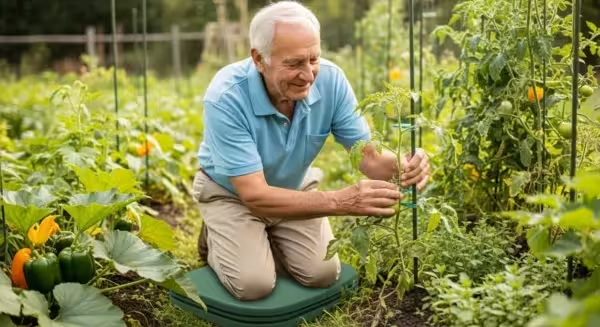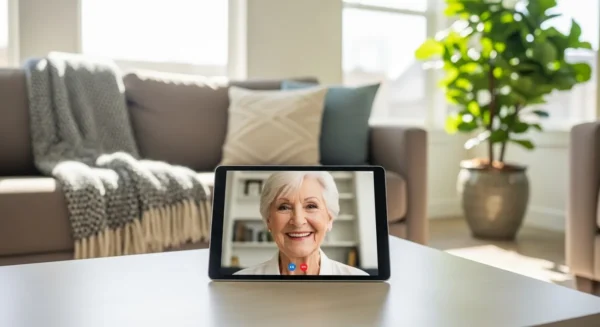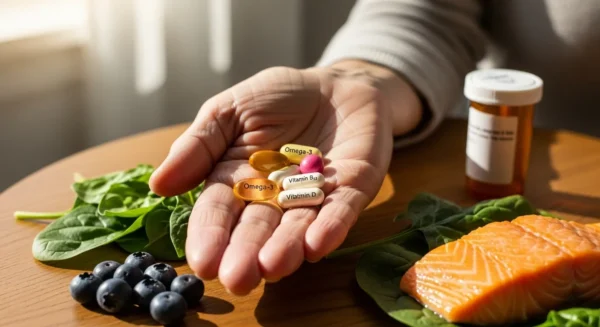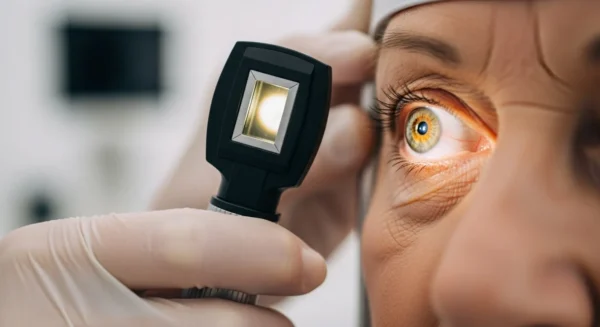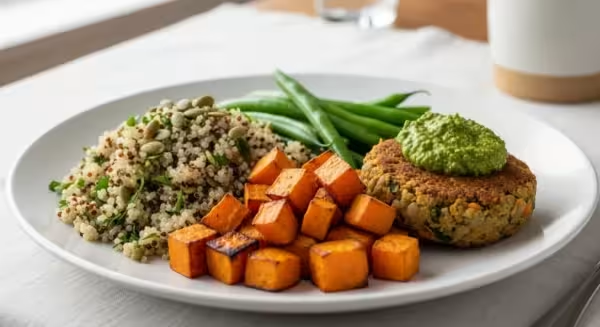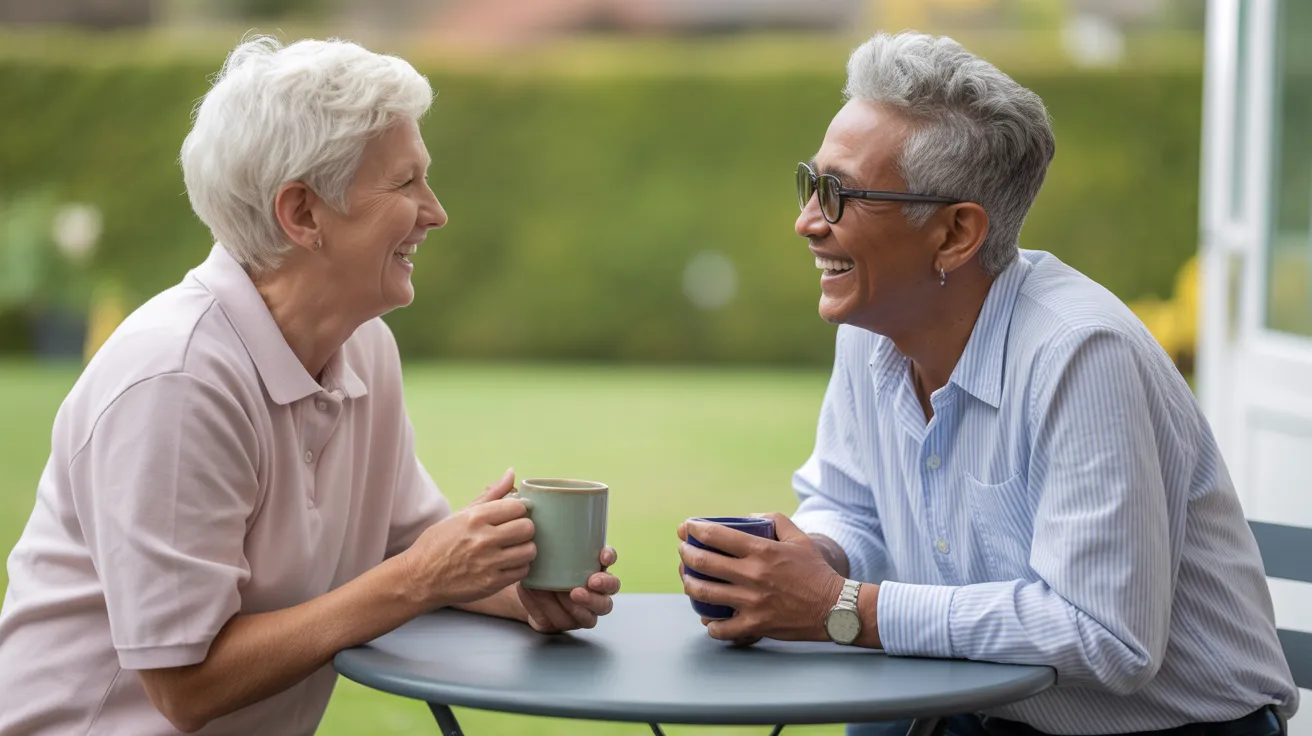
Practice 2: The Power of Social “Snacking”
We often think of social interaction in terms of big events: family dinners, weekly club meetings, or community gatherings. While these are wonderful, the concept of “social snacking” focuses on the value of small, frequent, positive interactions throughout your day. Loneliness and social isolation are significant health risks for older adults, linked to a higher risk of depression, cognitive decline, and heart disease. Social snacking is a simple and effective antidote.
Understanding the Benefits: These brief moments of connection trigger the release of hormones like oxytocin, which can lower stress and create feelings of trust and well-being. They remind you that you are part of a community, which is fundamental to emotional health. For those with limited mobility, these small interactions can be a lifeline, making this a vital practice for healthy aging.
How to Practice Safely: The goal is quality over quantity. Safety, both physical and emotional, is paramount.
- Chat with the Cashier: Instead of rushing through the checkout line, make eye contact, smile, and ask the cashier how their day is going.
- Greet Your Neighbors: When you collect your mail or step outside, make a point to wave and say hello to neighbors you see.
- Make a Quick Phone Call: Think of a friend or family member you haven’t spoken to in a while and call them for a quick five-minute chat just to say hello. No agenda is needed.
- Engage in Online Communities: If leaving the house is difficult, find a safe, moderated online group focused on a hobby you enjoy, like gardening, book clubs, or classic films.
Consult a Doctor If: You find that social interactions, even small ones, consistently cause overwhelming anxiety or feelings of depression. A mental health professional can provide support and strategies. Information from the National Institute of Mental Health (NIMH) can be a valuable starting point for finding help.

